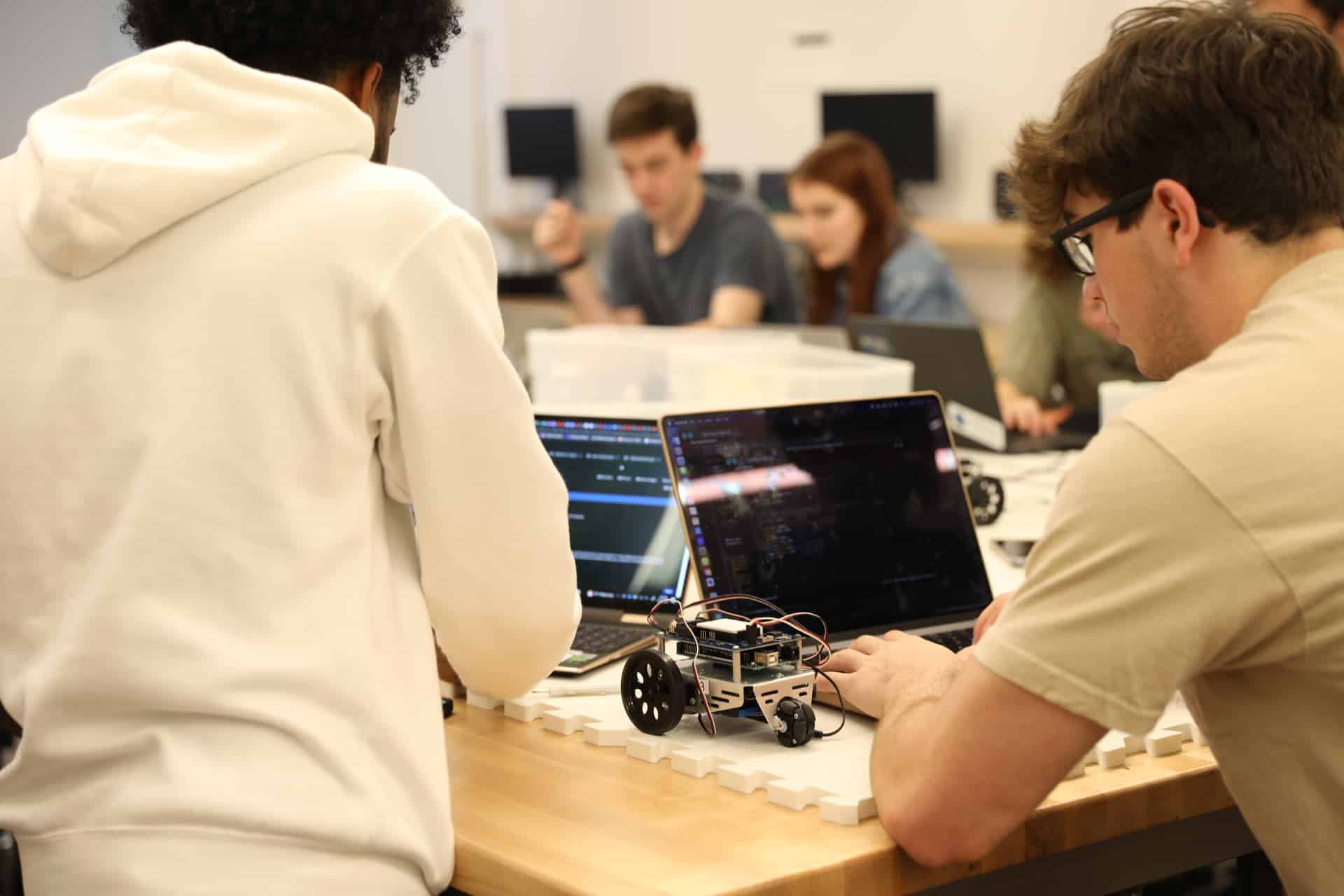Undergraduate Admissions
Make Tomorrow’s Magic
Arthur C. Clarke was right—any sufficiently advanced technology appears indistinguishable from magic. Today’s magic—smartphones, generative AI, autonomous machines —are quickly becoming commonplace. When you’re a Duke undergraduate, you’ll see what we’re working on now: quantum computing, VR surgery, cloaking metamaterials. You know, tomorrow’s magic.

Computer Engineering or Computer Science?
What’s the difference? Duke’s answer may surprise you.
No Coding Experience? No problem.
Our new First Year Computing course is the next evolution in coding education, teaching novices the art of building exquisitely precise algorithms before writing a single line of code (if you need it, that is). And its focus on real-world projects will show you how a high command of computing expertise will help you achieve any of your future ambitions.
Paired with our signature First-Year Design class, which will allow you to try on the cloak of an engineer while building critical thinking, effective communication, grit and resilience, you’ll emerge from your first year ready to take on any challenge. First Duke’s, and then the world’s.
Come join us for the adventure of a lifetime.

Flexibility and Options
Our undergrad program is flexible, to match your interests. To match your purpose, it’s also aimed at real-world career opportunities.
We provide more opportunities while being less restrictive than many other ECE programs in the United States. Students flex on this advantage to expand their horizons and explore personal interests more deeply.
Plus, students who elect to complete a more in-depth pathway can earn a Concentration in Machine Learning or Software Engineering designation on their transcript.
Where Our Students Go
College may be just as much about the journey as the destination, but let’s face it…the destination matters, too. Nearly 80% of recent Duke ECE graduates had a job after graduation that paid a median of $95,000 (ranked Top 10 by Payscale). Our graduates are now working at the likes of Apple, Meta, Morgan Stanley and GE Healthcare. And the other 20%? They’re busy, too, either heading back to school or starting their own businesses.
Get a Feel for Campus Life
There’s a palpable energy on Duke’s campus, the result of connections being forged, creativity being sparked, and ideas being born. Tap into that energy—you’re going to need it. You’ve got 8,600+ acres to roam and the city of Durham to discover; 1,700 classmates to meet; 27 varsity, Division I teams to cheer on; and Midnight Breakfast to nosh. More pancakes?


Michael Richard Gustafson
ECE Director of Undergraduate Studies, Associate Professor of the Practice

Rabih Younes
Associate Director of Undergraduate Studies, Associate Professor of the Practice in the Department of ECE

